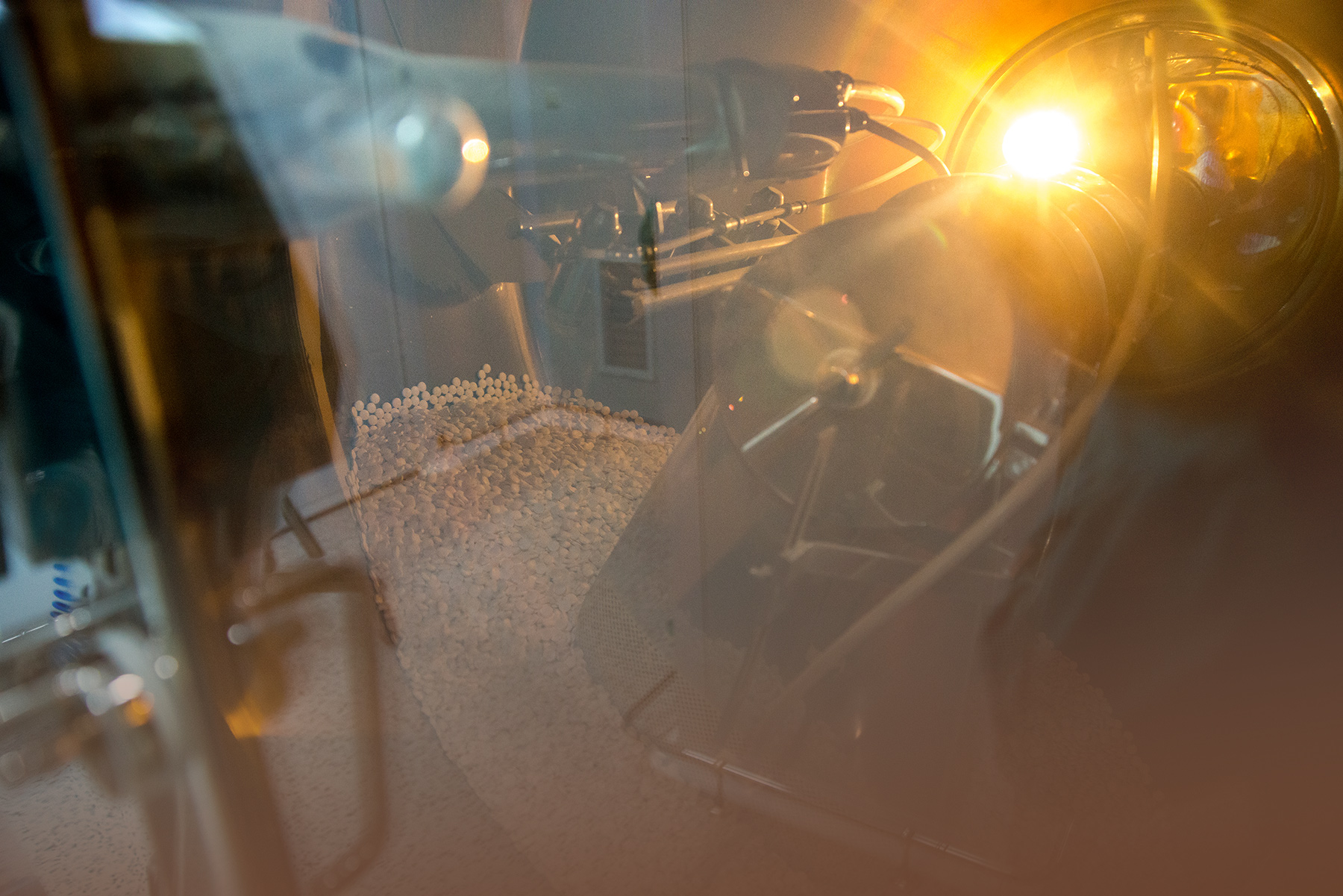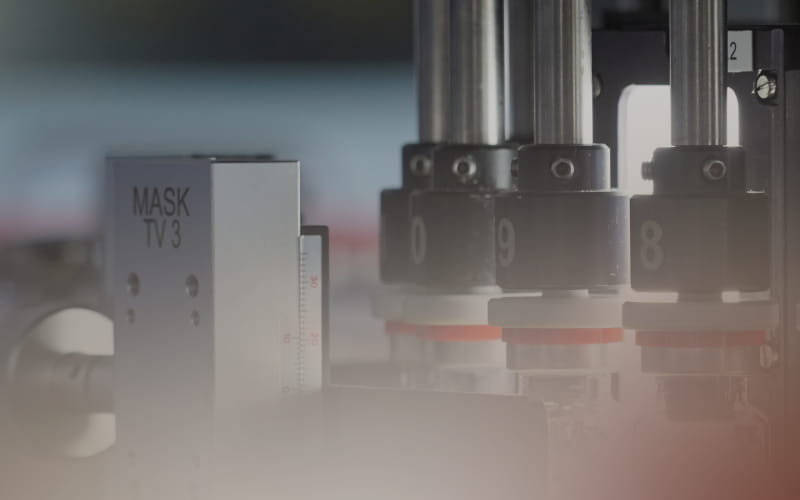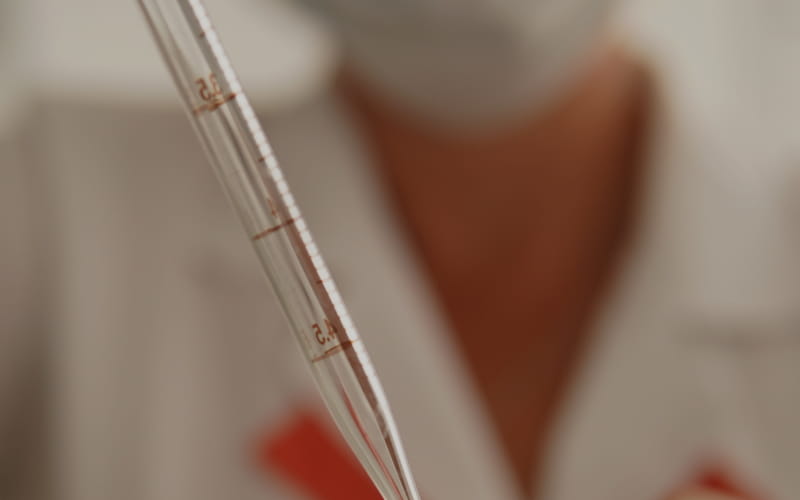
New possibilities of etiotropic therapy for coronavirus infection were discussed at a council of experts in Moscow
Experts, reputable clinicians and scientists, including members of the Russian Academy of Sciences discussed current aspects of targeted therapy for the novel coronavirus infection and, in particular, the prospects for the use of Esperavir® (molnupiravir).

Council members reached a consensus that COVID-19 continues to pose a serious threat to human health and life. This indicates the need to equip doctors with highly effective etiotropic therapies that have a universal effect on RNA viruses, regardless of the variability of strains. Early initiation of targeted antiviral therapyis necessary to prevent worsening of the disease. That said,RNA-dependent RNA polymerase, which participate in the reproduction of the main pathogens of respiratory viral infections, is of particular interest as a target for suppressing viral replication.
Currently, international experience has been gained in the use of molnupiravir in the treatment of the novel coronavirus infection. Available data on the mechanism of action, pharmacological effects, pharmacokinetics, toxicity studies and the safety profile of the drug allow us to consider it as one of the most potential drugs for the treatment of the novel coronavirus infection. Molnupiravir is superior to standard therapy in terms of efficacy, regardless of patient age and the presence of comorbid conditions. The therapy is characterized by a favorable safety profile.
Based on available clinical trial data, it is reasonable to include molnupiravir in treatment schemes for outpatients with COVID-19. Treatment with medicinal products based on molnupiravir (in particular, Esperavir®) should be started as soon as possible after the onset of symptoms of the disease.
It is advisable to consider molnupiravir as a drug for post-exposure prophylaxis of COVID-19, and given the high likelihood of virus persistence in case of Long-COVID-19, it seems reasonable to use direct antiviral drugs after the acute period. This issue requires further study and appropriate clinical studies.
In particular, during the meeting the following was noted:
«In clinical studies involving more than 3,000 patients (including patients of the older age group and patients with comorbid conditions) from around the world with varying degrees of COVID-19 severity, the drug showed high efficacy in reducing the amount of viral RNA; on the fifth day of treatment the virus was no longer isolated from patients. In addition, molnupiravir provided a faster clinical improvement, and the percentage of hospitalized patients decreased by more than three times,» said Alexander Dmitriev, cand. med. sci., head of the Center for Epidemiologically Significant Infectious Diseases.
«The emergence of our domestic molnupiravir is an opportunity to provide an effective treatment, as far as it is possible today, in fact, to the majority of citizens of our country,» said in his speech Vladimir Chulanov, Doctor of Medical Sciences, Chief Outstaff Specialist in Infectious Diseases of the Russian Ministry of Health, Deputy Director for Research and Innovative Development of the National Medical Research Center for Phthisiopulmonology and Infectious Diseases of the Russian Ministry of Health.
«Medicinal products based on favipiravir (Areplivir) and molnupiravir (Esperavir) remain effective against the omicron strain. The first of these drugs has been used in our practice for a long time, now we are just starting to use the second one. Both drugs are inhibitors of RNA dependent RNA polymerase, although their mechanism is somewhat different, so it is quite possible that they could have a complementary effect. In the situation of the spread of active omicron strain, they may become our main drugs in the arsenal to combat this infection. The safety profile of Esperavir is very favorable, this is a short five-day treatment, and its prescription in the early stages, especially in risk groups, will be the most correct tactic, from my point of view,» commented her clinical experience Larisa Balykova, Corresponding Member of the Russian Academy of Sciences, Doctor of Medical Sciences, Professor, Director of the Medical Institute, Head of Department of Pediatrics at the Ogarev Mordovia State University.
«Drugs targeted on RNA-dependent RNA polymerase, such as favipiravir and molnupiravir, are, in the opinion of a clinical pharmacologist, of undoubted interest, since they have high specificity and efficacy, on the one hand, and a wide spectrum of antiviral activity, on the other. In the study, the main purpose of which was to determine the safety, tolerability and pharmacokinetic parameters, already by the fifth day of treatment with molnupiravir, there was a fairly high percentage (more than 40%) of patients who had no clinical symptoms at all, that is, patients with complete clinical recovery. There was also an improvement in clinical symptoms compared to standard therapy,» Balykova added.
Following the results of the expert council, the participants unanimously agreed on the need to promptly inform primary care physicians about the availability of a highly effective agent and conduct training on the rational use of direct antiviral drugs. In addition, it was highlighted that the emergence of the new drug based on domestic molnupiravir is a big breakthrough for Russian pharmaceutical industry.
Meeting participants:
— Vladimir Chulanov, Doctor of Medical Sciences, Professor of the Department of Infectious Diseases, Faculty of Preventive Medicine at the Sechenov First Moscow State Medical University, Deputy Director for Research and Innovative Development of the National Medical Research Center for Phthisiopulmonology and Infectious Diseases of the Russian Ministry of Health, Chief Outstaff Specialist in Infectious Diseases of the Russian Ministry of Health;
— Dmitry Pushkar, Academician of the Russian Academy of Sciences, Doctor of Medical Sciences, Professor, member of the Academic consortium of the academic community for the study of COVID-19, Chief Outstaff Urologist of the Russian Ministry of Health;
— Larisa Balykova, Corresponding Member of the Russian Academy of Sciences, Doctor of Medical Sciences, Professor, Director of the Medical Institute, Head of Department of Pediatrics at the Ogarev Mordovia State University;
— Oksana Drapkina, Corresponding Member of the Russian Academy of Sciences, Doctor of Medical Sciences, Professor, Director of the National Medical Research Center for Therapy and Preventive Medicine of the Russian Ministry of Health, Chief Outstaff Specialist in Therapy and General Medical Practice of the Russian Ministry of Health;
— Alexander Gorelov, Corresponding Member of the Russian Academy of Sciences, Doctor of Medical Sciences, Professor, Deputy Chairman of the Board of the Moscow Society of Pediatric Doctors. Chairman of the Board of the National Scientific Society of Infectious Diseases (NSSID);
— Dmitry Sychev, Corresponding Member of the Russian Academy of Sciences, Doctor of Medical Sciences, Professor, Professor of the Russian Academy of Sciences, Rector of the Russian Medical Academy of Continuous Professional Education
— Sergey Avdeev, Corresponding Member of the Russian Academy of Sciences, Doctor of Medical Sciences, Professor, Head of the Department of Pulmonology, Faculty of Medicine at the Sechenov First Moscow State Medical University of the Russian Ministry of Health, head of the clinical department of the Federal State Institution «Research Institute of Pulmonology» of the FMBA of Russia, Chief Outstaff Pulmonologist of the Russian Ministry of Health;
— Dmitry Lioznov, Doctor of Medical Sciences, Professor, Director of the Smorodintsev Scientific Research Institute of Influenza of the Russian Ministry of Health;
— Alexander Dmitriev, Candidate of Medical Sciences, Head of the Center for Epidemiologically Significant Infectious Diseases;
— Konstantin Kolontarev, Doctor of Medical Sciences, Professor, Head of the Academic Department of the Faculty of Postgraduate Education of the Department of Urology at the Moscow State University of Medicine and Dentistry, Head of the Department of Oncourology at Spasokukotsky City Clinical Hospital.



